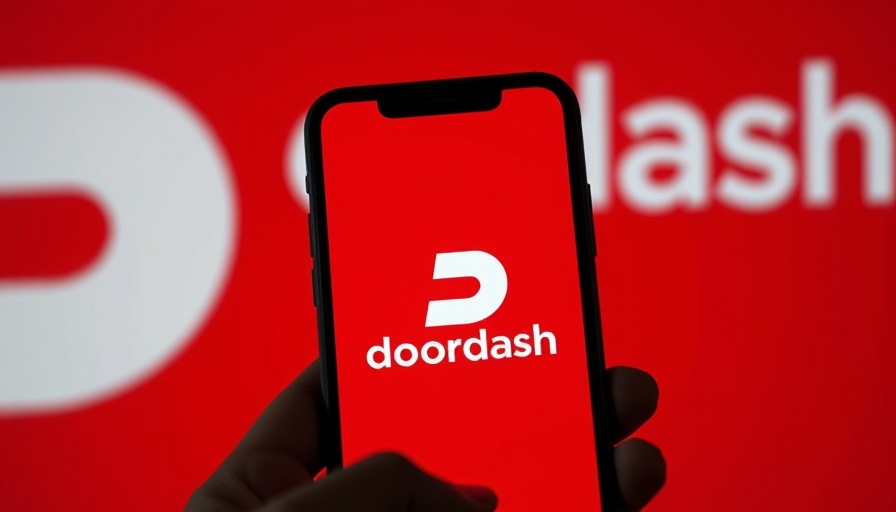
DoorDash’s Legal Battle: The Core of Competition in Food Delivery
In a provocative twist in the battle for market dominance in the food delivery sector, DoorDash is seeking to dismiss a lawsuit initiated by Uber, which accuses it of using intimidation tactics to secure exclusive deals with restaurants. DoorDash asserts that Uber's allegations lack foundation, characterizing the suit as a desperate maneuver from a competitor struggling to keep pace. This case reflects not only competition between two delivery giants but also poses broader questions about fairness and ethical practices in the rapidly evolving gig economy.
The Allegations: Unpacking Uber’s Claims
Uber's lawsuit, filed in February, highlights serious accusations: DoorDash is allegedly coercing restaurants into signing exclusive contracts by threatening steep monetary penalties or jeopardizing their visibility on the DoorDash app. This raises an essential concern regarding the ethics of competitive behavior within the market—are companies pushing the boundaries of fair play to secure an advantageous position?
In its defense, DoorDash argues that competition should be rooted in providing value to consumers and merchants alike. CEO's staunch position asserts that DoorDash is committed to competition on merits and maintains fair practices, positioning itself against claims of coercion.
Market Dynamics: A Closer Look at Competition
The context of this lawsuit cannot be dismissed lightly. As DoorDash currently leads the food delivery industry in the U.S., market share dynamics heavily influence how companies behave. In trying to outmaneuver each other, delivery services are navigating a terrain filled with legal, ethical, and operational challenges. Innovations in delivery efficiency, customer service, and pricing strategies have become battlegrounds, essential for survival.
Uber Responds: The Stakes of This Legal Duel
Uber's counterarguments strike a strong note. The company contends that coercion undermines the very essence of competition, impacting not just the businesses involved but also consumers who rely on a fair marketplace. Uber’s spokesperson has made it clear that they will not shy away from litigating the case, emphasizing its determination to advocate for restaurants and maintain a level playing field across the market.
Future Predictions: The Impact on Business Practices
As the July court date approaches, the implications of this case extend beyond just Uber and DoorDash. Industry watchers are keenly observing how the outcome may influence practices among competitors in the gig economy. The ruling could set a precedent that either curtails aggressive competition tactics or legitimizes them—a decision pivotal for startups and established players alike.
Diverse Perspectives: Stakeholder Reactions
Stakeholder reactions to this legal battle reflect a spectrum of sentiments. Some industry analysts argue that strict regulatory frameworks are necessary to safeguard smaller companies from pressure tactics imposed by market leaders. In contrast, advocates for free market principles warn against over-regulating an already competitive field. This disparity in perspectives emphasizes the complicated nature of competition and regulation in the gig economy.
Common Misconceptions About Competition in the Gig Economy
Many people believe that competition within the gig economy is purely a quest for market share and profit. However, this case reveals that it is also about operational ethics and the treatment of partners—restaurants, delivery personnel, and consumers. Misunderstandings about the nature of competition can lead to oversimplified solutions for a deeply intertwined issue.
Conclusion: What’s Next for DoorDash and Uber?
As the court hearing looms, both DoorDash and Uber's legal teams prepare to present their arguments. For the business community, this lawsuit is more than just a legal predicament; it is a manifestation of the complexities that define the tech-driven marketplace. Continuous scrutiny and advocacy for ethical business practices will be essential as this case unfolds.
It's crucial for business leaders and stakeholders to stay informed about the outcomes and implications of this lawsuit, as it may redefine operational standards not just in food delivery, but across all digital service platforms.
 Add Row
Add Row  Add
Add 




 Add Row
Add Row  Add
Add 

Write A Comment